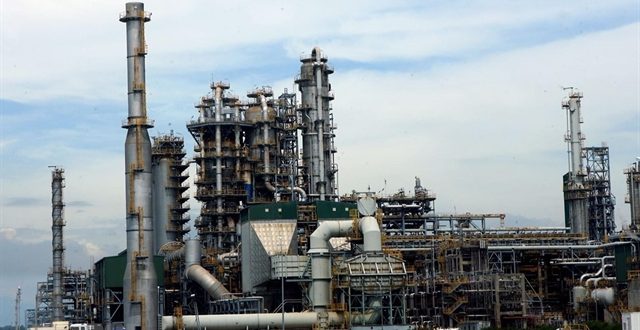The petrodollar system, established in the tumultuous economic landscape of the 1970s following the oil crisis, denotes the global practice of trading oil in U.S. dollars. Born from a strategic pact where OPEC nations aligned oil prices with the dollar, the system was a geopolitical chess move that bolstered the dollar’s dominance as the world’s reserve currency, reshaping international trade and finance in a manner that continues to influence economic relations to this day.
The Oil Economy and Global Finance
Oil transcends its role as a mere commodity to become a cornerstone of global finance. Its dollar-denominated trade compels nations to amass significant U.S. dollar reserves, thereby shaping currency markets and directing the currents of international capital. The Organization of the Petroleum Exporting Countries (OPEC) holds considerable influence over the pricing of oil, wielding the power to impact global economies profoundly. This was exemplified during the embargoes of the 1970s and is echoed in today’s market volatilities that stem from geopolitical strife.
Petrodollar Recycling and Economic Impact
Petrodollar recycling involves the reinvestment of oil-exporting countries’ surplus funds into foreign assets, often in oil-importing countries. This process can affect global investment patterns and interest rates, creating a complex interdependence between oil-exporting and importing nations. It has the potential to generate economic growth in developing countries but can also lead to increased volatility in global financial markets.
Geopolitical Dynamics and Oil
Oil, as a critical strategic commodity, has long been a cornerstone of global geopolitical strategies. The Middle East, rich in petroleum reserves, has been a central theater for U.S. foreign policy maneuvers, particularly during the Cold War’s geopolitical chess game. Today, the region’s enduring conflicts often revolve around oil-related interests, underscoring the resource’s unrelenting importance. The imperative of securing oil supply channels remains a decisive factor in the international policy-making of numerous nations, reflecting the deep interconnection between energy resources and global diplomacy.
Military Interests and Energy Security
Energy security stands as a critical national interest, driving the strategic underpinnings of military deployments across the globe. The enduring presence of U.S. military forces in the strategically vital Persian Gulf exemplifies this, highlighting the lengths to which nations commit military resources to ensure uninterrupted access to oil. Consequently, defense spending in such oil-rich regions is frequently aligned with the imperatives of energy security, underscoring the essential nature of petroleum as a resource pivotal to national and international security objectives.
Environmental Concerns and the Future of Petrodollars
The global energy paradigm is undergoing a pivotal transformation as the imperative to address climate change propels a shift towards renewable energy. This evolution portends a gradual diminution of the petrodollar’s influence, which has long underpinned major oil-exporting nations’ economic stability. As these countries confront the necessity to diversify their economic portfolios in anticipation of a decarbonized future, we can expect a profound realignment in the geopolitics of energy—a redistribution of power that may redefine international relations and economic dependencies for the decades ahead.
Alternatives to the Petrodollar and Emerging Trends
The petrodollar system, a cornerstone of the global energy market for decades, is encountering challenges from a diversifying monetary landscape. The rise of the euro and the yuan as alternative reserve currencies heralds a shift in the economic order, diluting the once unchallenged dominance of the dollar in oil transactions. This shift is indicative of broader economic changes that underscore the fluid nature of global financial power and the increasing multipolarity of the world economy.
As the financial architecture underpinning global energy trade enters a new era, the role of digital currencies is becoming increasingly pronounced. These new forms of currency are redefining transactional processes, introducing a significant evolution in how energy trade is conducted. The emergence of such innovation’s points to a future where traditional trading mechanisms are augmented or even replaced by digital solutions, paving the way for a reimagined hierarchy in the energy domain and potentially reshaping the geopolitical landscape.
Conclusion: Petrodollars in the 21st Century
The role of petrodollars in geopolitics remains significant, but the landscape is evolving. Climate policies, renewable energies, and new financial technologies are all contributing to a transformation in the relationship between oil and global politics. As we navigate this shift, engaging with resources like “oil-profits.com” can enhance our understanding of the market’s dynamics and inform decision-making. The future of petrodollars is uncertain, but one thing is clear: the intersection of oil and geopolitics will continue to shape our world in profound ways.
 Isaiminia World Breaking News & Top Stories
Isaiminia World Breaking News & Top Stories




